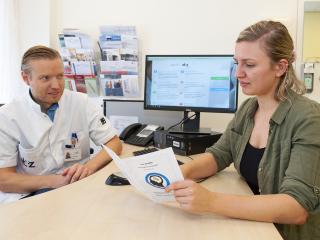Smart Start
Problems such as violence, child abuse, or major developmental delays do not arise overnight but grow over the years. They often pass from generation to generation. Therefore, many problems in families can already be predicted. Nevertheless, we now often wait for problems to get very big before we deploy help. Tilburg University works together with CentERdata, Strong House (Sterk huis), and other social partners on these issues.
Better and more effective (preventive) youth care
Poverty, growing up in a single-parent family, psychological problems of the parent, or marital problems: these factors have a great influence on children and can lead to developmental delays and behavioral problems. As such, they are a major cause of inequality of opportunity for children and families. How do you identify at an early stage where major problems arise, which risk factors are the precursor to major problems, and which children and families need extra help?
Identifying care issues at an early stage by using data science
The aim of Smart Start is to investigate the extent to which a combination of specialist knowledge and data can ensure that deviating patterns are recognized as quickly as possible, and that risks of problems can be identified and (where possible) prevented as early as possible. Ultimately, this should lead to better and more effective (preventive) youth care. Smart Start not only wants to prevent the transmission of problems from generation to generation, but also to respond to the scarcity of care professionals, rising healthcare costs, and decreasing budgets.
Data science analyses based on existing register data from Statistics Netherlands (CBS) provide valuable insights into (the likelihood of) certain problems. Based on the identified risk factors, appropriate support is then put into place with design thinking; for example, for schools and general practitioners, and in vulnerable neighborhoods.
The Smart Start program organizes various pilots in the Hart van Brabant region with the aim of realizing a working, transferable methodology. Pilots are carried out with, among others, primary schools, municipalities, and the food bank.
Collaboration
In the program, CentERdata collaborates with the Tilburg Data Science Center and the Tilburg University Impact Program, Strong House, Hart van Brabant region, Xpect Primair, and GGD Hart voor Brabant.
The Smart Start partners would like to measure the effects of the pilots (for a longer period of time) and to carry out more pilots (also in other forms) in order to further develop the methodology, with new data sources, in addition to the CBS data.
Looking for partners
To this end, Smart Start is constantly looking for new partners with whom we can carry out pilots and together with whom we can learn. Smart Start also seeks cooperation with researchers with expertise relevant to the pilots, such as (effects of) poverty and educational disadvantage.
Results
The ambition is to make the Smart Start methodology transferable to other regions, including a methodology for measuring and monitoring the effects.
A methodology for early identification of demands for care using data science, thereby reducing problems and the need for care, by means of collective, preventive solutions.
- Program Smart Start (in Dutch)
- Newsletter and pilot update
- Strong House (in Dutch)
News, some items are only available in Dutch
Contact
Vivian Jacobs - program manager Smart Start
Patricia Prüfer - principal researcher Smart Start, CentERdata
Lian Smits - chair of the Smart Start steering group, director Sterk Huis

